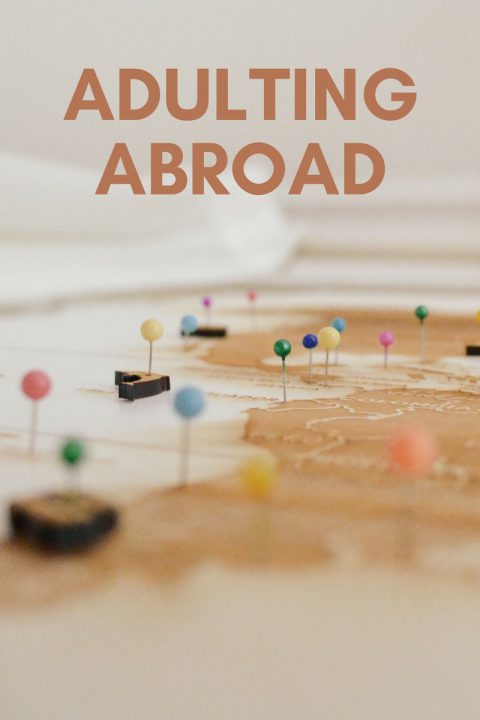No one really wants to grow up. We want the benefits and independence that comes with adulthood, but none of the drawbacks. Studying abroad is very much the same. We all want to see the Eiffel Tower, swim in the Mediterranean, eat pizza and gelato in Italy with reckless abandon, walk the Great Wall of China, and hike in the Andes without worrying about logistics, financing, and risk management. But, as in life, studying abroad requires us to put on our big girl/boy panties and grow up a bit.
I find that as studying abroad becomes more accessible and a larger number of students go abroad each year, that less and less students leave home with a proper expectation of spending time in a foreign country. What students should know boils down to a few points: you can’t know everything before you go, be willing to adapt, make good judgement calls, and develop your problem-solving skills.
 |
| Photo by Tim Graf |
Learn & Adapt
Accept that you can’t know everything before you go, and adapt. With so much information available on the internet, we are used to avoiding “going in blind” to just about any situation. I have noticed an increasing focus from students who want to know exactly how their life will be, which is counterintuitive to the very notion of studying abroad. When I studied abroad, I received an acceptance letter and a pamphlet before I left. That was it.
The magic of studying abroad is not knowing what to expect, and then, inevitably being awed. Sure, you should ask about what to pack, what courses are available, and what accommodations are available if you have any medical or academic needs, but make sure to leave much of the rest to the imagination; and more importantly, be willing to adapt to whatever you find when you get there.
Use your Brain
Make good judgement calls. New and exciting opportunities await every study abroad student, but that doesn’t mean that every opportunity should be taken. Living in a foreign country can influence students to make decisions that they would not necessarily make at home. If something is dangerous or in poor judgement at home, the same behavior is in poor judgement abroad.
Build Community Abroad
Be prepared to think on your feet. Those who study abroad are constantly confronted with new and changing circumstances. Push yourself to solve problems on your own by observing what those around you are doing. While parents can be wonderful for giving advice, it is not effective to call your parents to resolve a housing issue or set up a doctor’s appointment for you abroad. Rely on those around you – the onsite staff and your friends – to help resolve issues as they come up. Becoming integrated in your network abroad will not only help you solve problems when they arise, but will help you adapt to your host culture.
 |
| Photo by Priscilla Du Preez |
If you’ve made the decision to study abroad, chances are that you already have a certain degree of independence. Being away from family, friends, and the lifestyle you have known is not always easy. But if you are prepared to adapt and think on your feet, studying abroad can be a life-changing experience. By all means, see as many things as you can, experience as much of the cultural as you can, go on adventures, and have fun. But do so while allowing your time abroad to cultivate your adaptability, judgement, independence, and growth.
Kristyn O. is CEA's Student Services Coordinator. She studied abroad in Stuttgart, Germany majoring in German and International Studies











